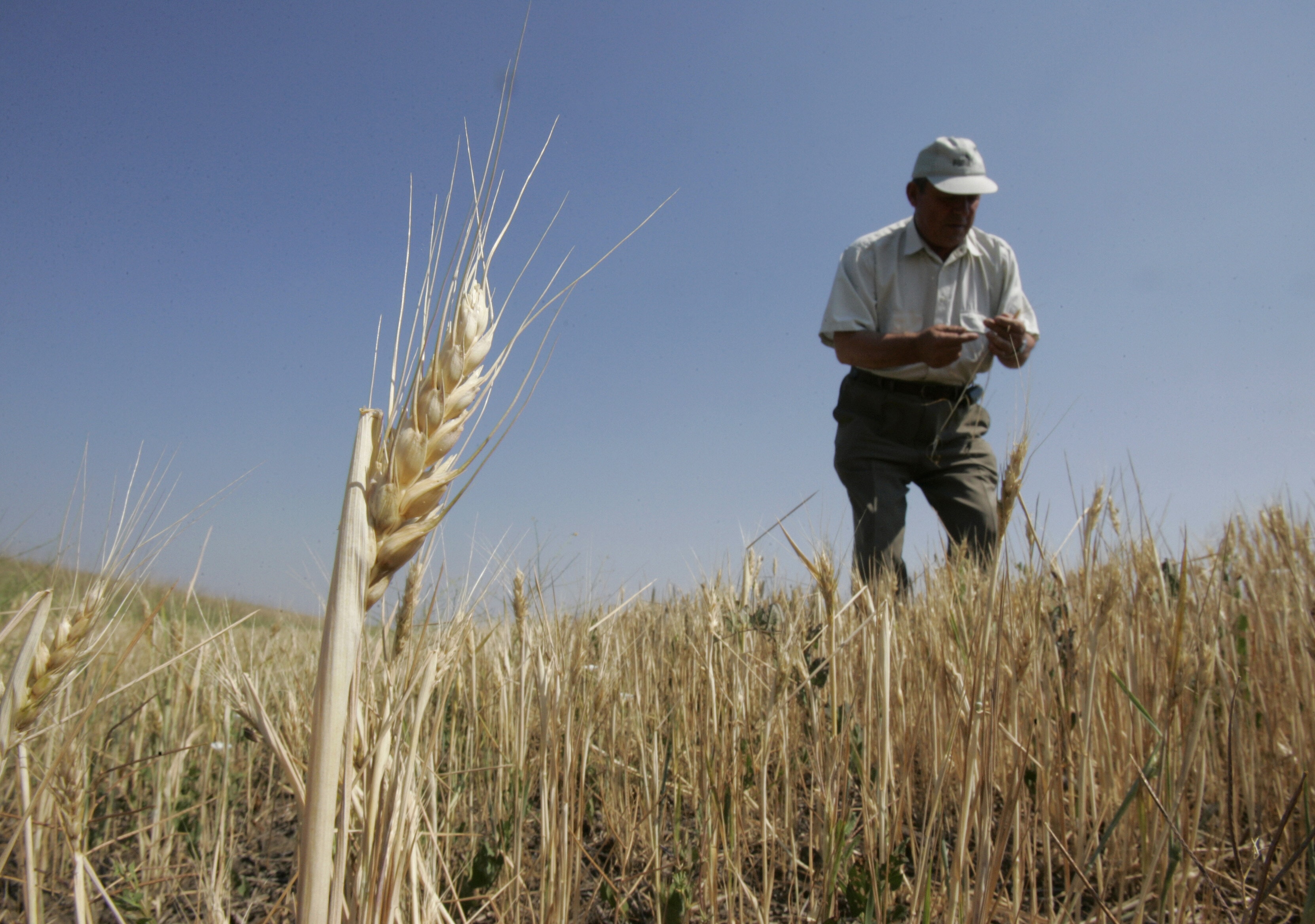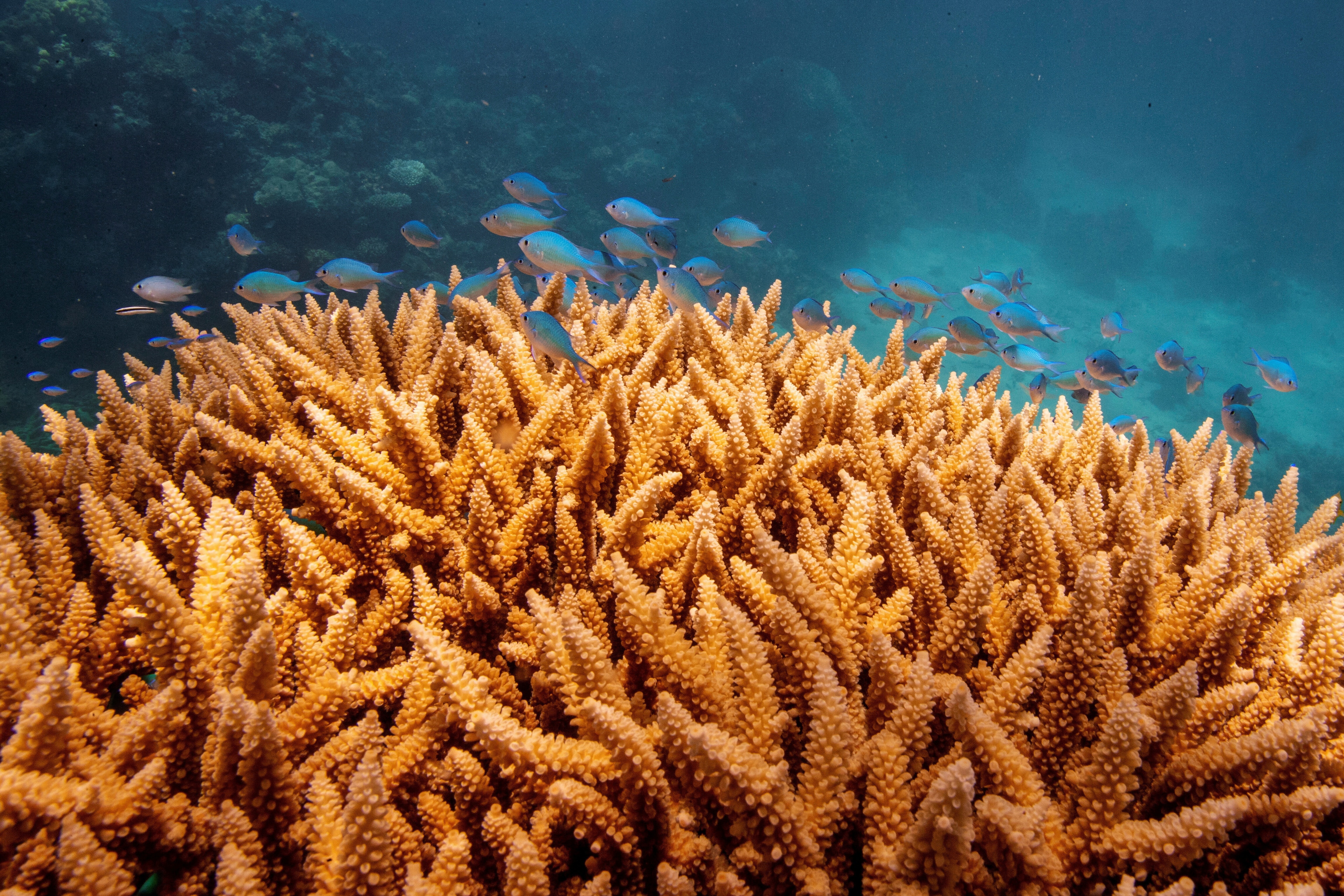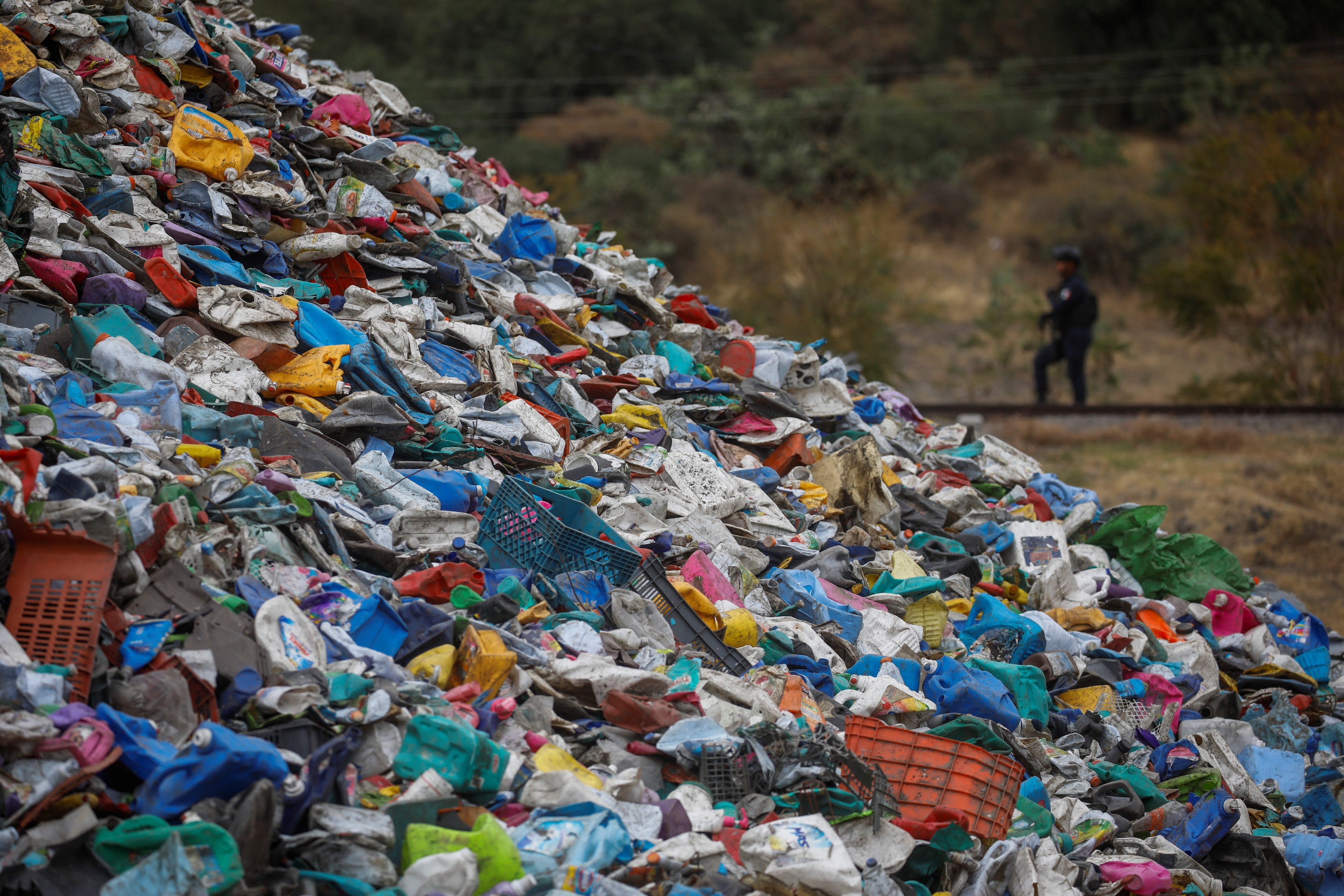'The era of global boiling has arrived' – plus other nature and climate stories to read this week

Top nature and climate stories: UN Secretary-General warns of 'global boiling' as Europe burns and July set to be hottest month on record; and more.
Image: Photo by Michael Held on Unsplash
Listen to the article
- This weekly round-up contains the key nature and climate news from the past week.
- Top nature and climate stories: UN Secretary-General warns of 'global boiling' as Europe burns and July set to be hottest month on record; Asia is the world's most disaster-prone region, according to WMO; Florida ocean surface temperature hits hot-tub levels.
1. Europe on fire, as July set to be hottest month on record
From Greece to Italy, Spain and Portugal, Turkey and Switzerland, European countries have been battling wildfires in the past week as much of the continent continues to be gripped by a heatwave.
As July drew to a close, with scientists predicting it could be the world's hottest month in 120,000 years, UN Secretary-General Antonio Guterres warned “the era of global boiling has arrived”.
Accept our marketing cookies to access this content.
These cookies are currently disabled in your browser.
On the Greek holiday island of Rhodes, more than 20,000 visitors and locals were forced to flee seaside resorts and their homes.
Strong winds and temperatures above 40°C fuelled blazes that have ripped through farms and factories and caused five deaths as of 27 July.
"The climate crisis may be a reality, but it cannot be an excuse," said Prime Minister Kyriakos Mitsotakis.
Three elderly people died on the Italian island of Sicily as firefighters battled 1,400 fires across southern parts of the country between 23 and 25 July.
Across the Mediterranean in Algeria, at least 34 people have died and more than 8,000 firefighters were brought in to bring flames under control, as fires spread to neighbouring Tunisia.
Meanwhile, it took 250 firefighters and nine aircraft to control a wildfire that burnt 400 hectares of woodland on the Spanish island of Gran Canaria, the emergency services said on 27 July.
And more than 600 firefighters were deployed to tackle blazes in the Portuguese mountainous area of Cascais, not far from the capital Lisbon.
Accept our marketing cookies to access this content.
These cookies are currently disabled in your browser.
Climate change was deemed by experts to be playing an "absolutely overwhelming" role in the heatwaves in China, and North America – as well as creating a tinderbox of conditions for wildfires in Europe.
The study by a group of global scientists, known as World Weather Attribution, said the events of the past month would have been "extremely rare" without human-caused climate change.
It comes as the European Union's Commissioner for Crisis Management Janez Lenarcic said the bloc wants to increase its fleet of firefighting aircraft to as many as 12.
2. Asia is the region most affected by climate change – WMO
Asia is the world's "most disaster-prone" region, with extreme weather and climate change impacts increasing in 2022, according to a new report from the World Meteorological Organization (WMO).
The WMO State of the Climate in Asia 2022 report found the continent, which has the largest land mass, is warming faster than the global average.
Accept our marketing cookies to access this content.
These cookies are currently disabled in your browser.
There were 81 weather, climate and water-related disasters in Asia in 2022. More than 83% of those were flood and storm events.
The WMO said these disasters directly impacted more than 50 million people – and 5,000 people lost their lives. It put the economic damage at more than $36 billion.
China lost more than $7.6 billion due to severe drought in 2022, while severe flooding in Pakistan saw the country receive 60% of its normal total monsoon rainfall within just three weeks, affecting almost 14% of its population.
The melting of most glaciers in the High Mountain Asia region was accelerated due to "exceptionally warm and dry conditions", said the report.
What’s the World Economic Forum doing about climate change?
3. News in brief: Other top nature and climate stories this week
Surface ocean temperatures in Florida Keys have hit levels typically found in hot tubs, according to government data. A water temperature buoy in Manatee Bay hit a high of 101.19°F (38.44°C) on 24 July.
The record-breaking temperatures Britain experienced last year will be considered average by 2060 and "cool" by 2100, according to the Met Office national weather service.
Italy has announced measures to assist families and businesses affected by extreme climate events. Prime Minister Giorgia Meloni approved a decree to support construction and agricultural companies in keeping their staff at home in areas experiencing extremely high temperatures.
Severe drought in Argentina could see the country's economy shrink by 2.5% in 2023, according to International Monetary Fund. The year-end inflation rate is expected to be around 120%. Drought has greatly reduced agricultural production.
Climate crisis-related court cases have more than doubled in just five years. Some 2,180 lawsuits across 65 jurisdictions globally have been filed, as shrinking water resources and dangerous heatwaves affect millions of people, according to a report by the UN Environment Programme and Columbia University.
4. More on the nature and climate crisis on Agenda
Climate change is making wildfires more frequent and intense, which is having a disproportionate impact on marginalized communities. Three experts explain how incorporating the diverse experiences of people into disaster planning, can create more effective and equitable responses to wildfires.
Natural carbon sinks absorb roughly half of atmospheric CO2. They range from the oceans and forests to elephants and fungi, and are some of the few solutions ready today for carbon removal. Protecting them is essential if they are going to help tackle the climate crisis.
Climate foreign direct investment (FDI) flows remain below their potential so the World Economic Forum has developed a guidebook to help facilitate investments. Here, two of the Forum's experts ask thought leaders in the field why climate FDI is so important and how it can be invaluable in tackling the impact of global warming.
Accept our marketing cookies to access this content.
These cookies are currently disabled in your browser.
Related topics:
More on Nature and BiodiversitySee all
Tom Crowfoot
August 14, 2025
James Balzer
August 14, 2025
Tom Crowfoot
August 12, 2025
Pedro Gomez and Clemence Schmid
August 6, 2025
Tom Crowfoot
August 5, 2025




